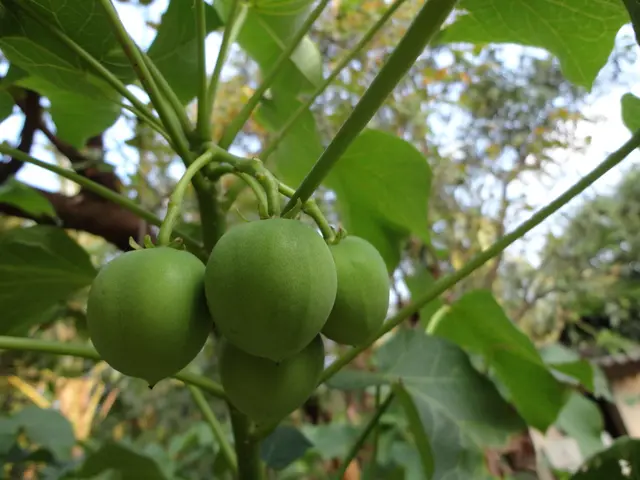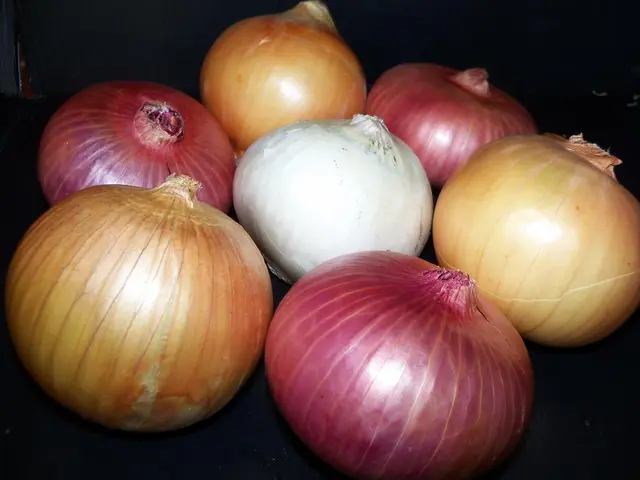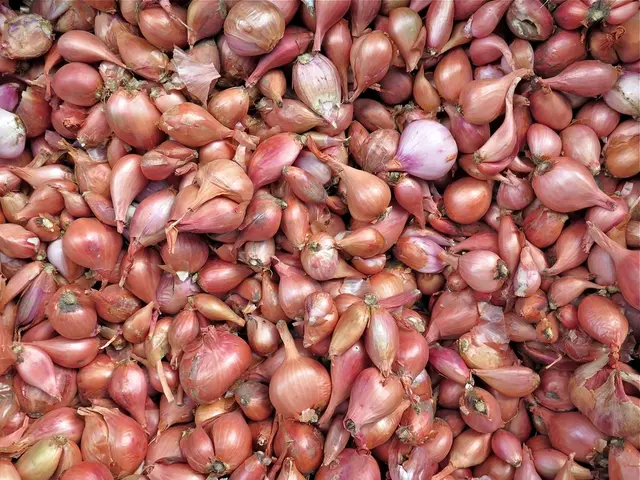Top 10 Sustainable Tips for Gardeners Using Natural Methods
Toxic-Free Green Thumb: Mastering Organic Gardening
Unleash your inner earth warrior and ditch the chemicals with this guide to toxic-free gardening! Rather than poisoning your plants with synthetic pesticides, arm yourself with knowledge and clever tactics to nurture a thriving eco-friendly garden.
So, what's the secret to a lush, chemical-free garden? Feed your soil and let nature do the rest!
Nourishing the Soil
Your plants crave nutrients, and the soil is where it's at. Swap store-bought fertilizers for homemade compost, manure, and other organic matter. This concoction will amp up your soil's health and fertility, ensuring your greenery gets the best start in life. Don't have access to animal manure? Worry not! Create your own compost bin and fill it with kitchen scraps and garden waste. After a year, you'll have a rich, nutrient-dense pile ready to mulch around your plants.
Curious about winter composting? Check out our guide to the top five methods to keep your garden teeming with life throughout the colder months. Looking for more ways to improve your compost game? Check out our tips on enhancing the decomposition process and selecting the perfect compost bin for your space.
Keeping Weeds at Bay
Weeds can be a menacing force, but they don't stand a chance in a well-managed organic garden. If you're accustomed to using chemicals to attack weeds, we've got good news: hand-weeding is the environmentally friendly alternative. Regularly hoeing at the seedling stage will keep them at bay, ensuring your garden remains a welcoming habitat for beneficial insects.
Avoid weeding overgrowth by employing mulches, covering the soil with cardboard and a thick layer of compost, or sowing green manure at the end of the season to crowd out unwanted plants.
Growing Companions
In the realm of organic gardening, the power of companionship knows no bounds! By planting certain plants together, you can confuse pests and attract their predators. For instance, onions paired with carrots can keep the dreaded carrot root fly at bay. Grow tagetes beneath tomatoes to prevent whitefly infestations, and employ annual flowers among susceptible plants to attract hoverflies.
Rotate Your Crops
To keep your garden thriving and pest-free, it pays to change things up. By rotating the types of crops you grow in each bed or patch of soil per year, you can avoid soil depletion and the buildup of pests and diseases.
Relax and Let Nature Take Control
Resist the urge to reach for the bug spray! Pests like aphids, caterpillars, leaf miners, and sawfly larvae are crucial in the food chain, supporting a whole ecosystem of creatures further up the food chain. They may seem like a headache, but giving them some space will help the predators move in and keep pest populations in check.
Fuel Your Plants without Expense
As an organic gardener, you'll need to explore alternative options for plant feeding. Rather than opting for pricey store-bought solutions, craft your own nutrient-rich concoctions. Making your own plant food from nettle or comfrey leaves is simple, affordable, and offers a spritz of additional nourishment to your green friends.
Cover it Up
Mulching is the unsung hero of organic gardening. By covering the soil with a thick protective layer, you can reduce weed growth, conserve moisture, and enrich the soil. Home-made compost, well-rotted manure, and leaf mould are all great options.
Raised Beds and Observation
Consider using raised beds instead of planting directly into the soil for easier management and reduced weed growth. The soil in raised beds warms up sooner, allowing you to sow seeds earlier in the year. Paying close attention to your garden is crucial for understanding its ecosystem and spotting potential problems before they spiral out of control.
Keep Slugs and Snails at Bay
Slug and snail populations ebb and flow each year. In good years, you may face minimal issues, but a bad year can spell trouble for your seedlings. Protect your garden gallantly with organic pellets made from iron phosphate, a safe alternative to harmful slug pellets laced with metaldehyde. You can also employ woollen pellets and copper tape to create barriers that the pesky mollusks won't dare to cross.
Embrace the organic lifestyle, and watch as your garden flourishes with the beauty of Mother Nature. Don't forget to keep an eye out for our top tips on companion planting, homemade pest control, and using natural repellents to create a balanced, pest-resistant ecosystem.
- For a thriving, chemical-free garden, consider the practice of raised beds, where you can amass organic matter and compost to nourish the soil, such as homemade compost, manure, and garden waste.
- Implementing raised beds also allows for easier crop rotation, which contributes to a healthier garden by preventing soil depletion and decreasing the prevalence of pests and diseases.
- When it comes to gardening tips, companion planting is a less-known yet powerful organic method, pairing certain plants together to confuse pests, attract predators, and create a balanced ecosystem.
- Embrace organic gardening by relying on homemade plant food instead of store-bought solutions, opting for simple, affordable creations made from plants like nettle or comfrey leaves to provide additional nourishment for your garden.








